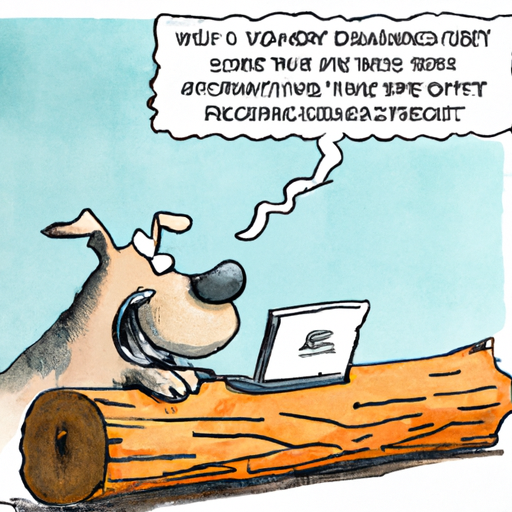We all love our furry friends, but their behavior can sometimes be puzzling. One such behavior is their seemingly insatiable desire to chew on wood. As a caregiver, you must be wondering, “Why do dogs chew on wood?” and “Is it harmful?” Let’s delve deeper into this matter.
Understanding Your Furry Friend
Understanding why your dog behaves in a certain way is the first step to addressing it. Chewing is a natural behavior for dogs, especially for puppies. They chew to explore their environment, to relieve boredom, and even to cope with anxiety or stress. However, when this chewing extends to non-edible objects like wood, it could be a sign of a deeper issue.
The Dangers of Wood Chewing
Chewing on wood might seem harmless, but it can pose significant risks to your dog’s health. Here are a few potential dangers:
- Injury to Mouth and Teeth: Wood can splinter and cause cuts or injuries in your dog’s mouth, gums, and throat.
- Obstruction in Digestive Tract: Swallowed wood pieces can cause blockage in the digestive tract, leading to severe complications.
- Toxicity: If the wood is treated or painted, it could contain substances that are harmful to dogs.
Preventive Measures
There are several ways you can discourage your dog from chewing on wood.
- Provide Chew Toys: Chew toys can provide a safe and acceptable outlet for your dog’s chewing behavior.
- Use Deterrent Sprays: There are sprays available that can make wood unappealing to your dog.
- Training: Teaching your dog the ‘leave it’ command can be very effective.
- Regular Exercise: A tired dog is a well-behaved dog. Make sure your dog is getting enough physical and mental exercise.
When to Seek Professional Help
If your dog’s wood chewing habit persists despite your best efforts, it might be time to seek professional help. This could be an indication of a more serious problem like separation anxiety or pica (a condition where dogs eat non-food items). A professional dog trainer or a veterinarian can provide guidance and treatment options.
FAQs
Q: Are certain breeds more prone to wood chewing?
A: While chewing is common in all dogs, some breeds like Labradors and Golden Retrievers are more prone to destructive chewing.
Q: Can wood chewing be a sign of nutritional deficiencies?
A: Yes, sometimes dogs chew on non-food items due to lack of certain nutrients in their diet.
Q: Is it safe for my dog to chew on sticks during walks?
A: It’s best to avoid it. Sticks can splinter and cause injuries or blockages.
Q: How can I train my puppy to not chew on furniture?
A: Provide them with plenty of chew toys and use deterrent sprays on your furniture. Training commands like ‘leave it’ can be very helpful.
Understanding your dog’s behavior can sometimes be a riddle, but with patience, love, and the right guidance, you can help them lead a happy and healthy life.



